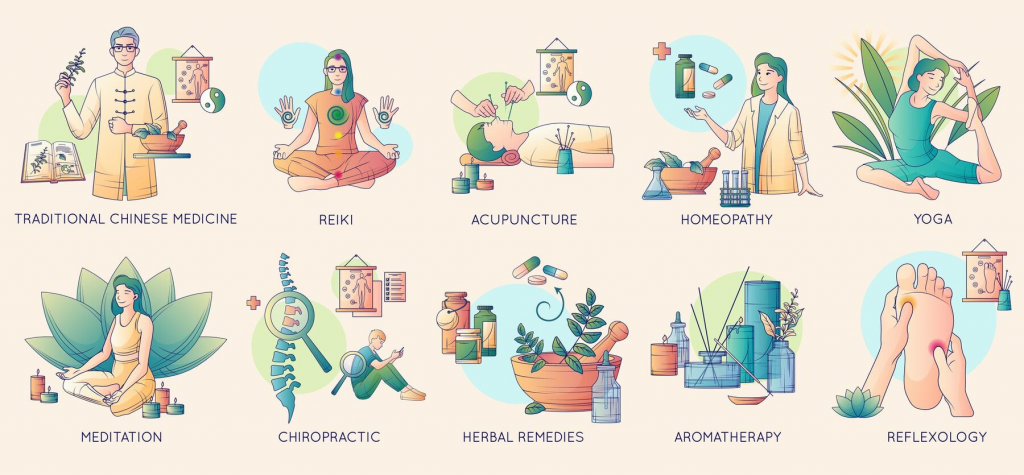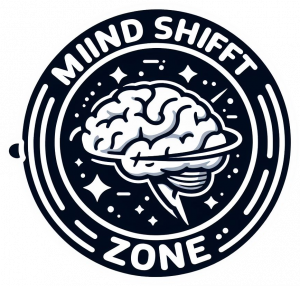Holistic healing is an old method of treating the whole person – body and mind, as well as spirit and emotions, rather than only the symptoms of disease. This holistic approach is designed to reduce illness and enhance general well-being by dealing with the fundamental causes of health problems. In this article we’ll define holistic healing, examine the concept, theories and practices. It will provide an in-depth knowledge of its benefits and uses.
What is Holistic Healing?
A holistic healing definition is a form of treatment that takes into account the whole person, which includes mental, emotional, physical, and spiritual aspects. The concept has its roots in the past, when people believed in the interconnection between body and mind. The ancient practices of Chinese treatments, Ayurveda, and Native American therapies to heal are only some examples of the ancient holistic practices. In the present, holistic healing combines these traditional practices with modern medical expertise to create an all-encompassing health model.
Principles of Holistic Healing
Holistic healing is based on a number of basic principles that set it apart from conventional medical practices. The aim of these principles is to provide an integrated, preventive and healthy approach to health.
Treating the Whole Person
Holistic healing stresses the importance of taking care of the person in all aspects. This includes examining the entirety of an individual’s life which includes the physical well-being, emotional well-being as well as mental and spiritual well-being. The majority of practitioners believe that these components are interconnected, and an imbalance in one may affect others. For example, stress and emotional turmoil can manifest in physical symptoms such as digestive problems or headaches. Through addressing these elements holistic healing aims to bring harmony back and improve overall well-being.
Balance and Prevention
A key concept in holistic health is its focus in balance, prevention and. Instead of treating only symptoms, holistic doctors strive to discover and tackle the root causes behind health problems. This approach is proactive and helps to prevent diseases before they begin and ensures balance in the body. Exercise routines like regular as well as a balanced diet regular sleep and managing stress are all encouraged to keep your mind and body in good state. Through establishing a lifestyle that encourages harmony, individuals can achieve longevity in health and wellbeing.
Natural and Least Invasive Methods
Holistic healing focuses on simple and less invasive methods of treatment. It can involve a range of methods, including herbs, acupuncture massage therapy, as well as dietary adjustments. The aim is to aid our body’s own healing process without having to rely on drugs or other invasive methods. Examples include using herbal teas to alleviate digestion issues or practicing yoga to ease anxiety. These aren’t just for relaxation.
Holistic Healing Methods

Holistic healing covers a broad array of treatments that are designed to treat the entire person. The methods are developed to restore harmony and balance in the mind, body, and soul by employing the most natural and non-invasive methods.
Nutritional Therapy
Nutritional holistic healing therapy is the foundation for holistic treatment. It is based on the notion the fact that foods are medicine, and that good nutrition can be used to aid in the prevention and treatment of different health issues. Practitioners develop individual diet plans that are based on the individual’s needs by incorporating foods that are rich in nutrients to improve health and avoid disease. Institute for Functional Medicine asserts that this method concentrates on whole foods that are unprocessed which are high in vitamins, minerals and antioxidants.
Herbal Medicine
Herbal medicine makes use of herbs and extracts of them to improve well-being and treat ailments. This traditional practice taps into the herbal healing properties to treat a wide range of diseases. For instance, echinacea is commonly used to boost immunity and ginger is a great aid in digestion problems. Herbalists develop customized solutions that are based on the individual’s particular health requirements and aim to bring balance back in a natural way.
Homeopathy
It is based on the premise it is “like cures,” making use of highly diluted ingredients to help the system’s natural healing processes. The practitioner selects treatments that, when used in greater amounts, can result in symptoms like those being treated. This approach is intended to improve the body’s self-regulating processes and boost overall health. Homeopathic remedies are tailored to the particular patient’s medical background and symptoms to offer the best healing method for each individual.
Acupuncture
Acupuncture is one of the most important components of the traditional Chinese medicine, which involves the use of needles that are thin into certain points on the body. This practice seeks to balance your flow of energetic called “qi,” through the meridians in the body. By stimulating these points it can relieve discomfort, ease stress and treat various health issues such as arthritis and migraines. It is well-known for its capacity to encourage relaxation and boost your body’s healing capacity.
Massage and Bodywork

Massage and bodywork therapies involves manipulating soft tissue of your body in order to reduce the pain, ease tension and improve circulation. Techniques such as Swedish massage as well as deep reflexology and tissue massage can be a fantastic way to relax muscles, increase flexibility, and assist overall relaxation. These kinds of treatments are often used alongside other holistic treatments, providing both physical and emotional benefits that enhance overall wellness.
Mind-Body Practices (Yoga, Meditation)
Yoga and meditation are crucial elements in holistic health. Yoga is a combination of breath exercises, physical postures and meditation to boost the physical and mental health. Based on Yoga Alliance It can improve flexibility and strength as well as balance as well as reducing anxiety and stress. Meditation is on the other hand is an approach to calm the mind and create an atmosphere of calm and peace. These methods can increase psychological clarity and stability and overall wellbeing.
Lifestyle and Environmental Adjustments
Holistic healing emphasizes the importance of making lifestyle changes and adjustments to help promote healthy living. This may include creating an appropriate work-life balance and getting active regularly as well as ensuring an environment that is healthy for living. Reduced exposure to toxins and maintaining a healthy sleep routine and encouraging positive relationships are essential. With these modifications people can create a positive environment that promotes overall health and wellbeing.
Holistic healing provides a wide variety of approaches to treating the entire person. Through integrating these methods people can live the balance and health they desire by addressing physical as well as emotional needs with healthy and natural methods.
Benefits of Holistic Healing
Holistic healing can provide a variety of benefits based on the entire person. The most significant benefit is better mental well-being. Methods like yoga, meditation and nutritional therapy are able to help reduce anxiety, stress, and depression, while promoting peace and a more peaceful mental state. These methods help to improve mindfulness and emotional resilience improving overall psychological wellbeing according to Psychology Today.
A better physical condition is another major advantage. The use of holistic practices such as acupuncture massage, acupuncture, or nutritional therapy can help improve the body’s functions, ease inflammation, and improve the immune system. These therapies address the root cause of physical conditions, rather than only the symptoms, resulting in more lasting health improvement.
Holistic healing also helps bring spiritual and emotional balance. Techniques such as journaling energy healing and spiritual counseling aid people connect to their own inner self and help to create a sense of tranquility and meaning. This balance can lead to greater well-being and a better life.
The prevention of chronic illnesses is a major aspect of holistic treatment. Through a holistic approach to living people can avoid conditions like heart disease, diabetes and arthritis. The importance of eating a balanced diet, regularly scheduled exercise, stress management and detoxification help to keep your health in good shape and lowers the risk of getting chronic illness.
Common Conditions Addressed Holistically

Holistic healing can effectively treat various common issues. Stress and anxiety can be controlled through methods such as meditation and deep breathing exercises and Acupuncture. These techniques aid in calming the nervous system, and aid in relaxation, while reducing the effect of stress on the mind and body.
The digestive issues that cause IBS, irritable bowel syndrome (IBS) as well as indigestion, can be treated using nutrition therapy, herbal medicine, and probiotics. These methods help to restore the health of your gut and balance in the digestion system. They can help with easing symptoms and enhancing the overall function of the digestive system.
Sleep Foundation source states the sleep disorder is a different issue that is treated holistically. Methods such as sleep hygiene education and herbal remedies such as valerian root, as well as relaxation techniques such as meditation and yoga can enhance the quality of sleep and aid individuals to attain restful, restorative sleep.
Hormonal imbalances, such as menstrual irregularities and thyroid issues are manageable through the use of nutritional treatment, herbal supplements and the use of acupuncture. These treatments are designed to control the hormones naturally and thereby improving the symptoms and overall well-being.
Autoimmune conditions, such as Rheumatoid and Lupus are treated with an anti-inflammatory lifestyle, stress reduction methods and Acupuncture. These holistic methods help to reduce inflammation, treat symptoms, and boost immunity.
Chronic pain, such as issues like fibromyalgia and chronic pain in the back, are eased by holistic healing techniques such as the use of massage therapies, acupuncture, and other mind-body exercises. These therapies target the root reasons for pain and provide long-term relief.
Holistic healing is a holistic treatment for health, which addresses both the emotional and physical aspects of various ailments. Through integrating these methods patients can improve their overall health, balance and overall wellbeing.
Holistic Healing in Practice
In the realm that is holistic health, professionals use a customized approach to health treatment. Practitioners begin with an exhaustive analysis of the patient’s eating habits food, health as well as mental health. A holistic nutritionist might examine the person’s diet to find nutritional deficiencies and propose a custom diet that includes all foods. Acupuncturists can use precise questionnaires to find out the imbalances in the energy of a patient in advance of treatment. This treatment approach is tailored to ensure that the treatment plan is taking care of every aspect of a person’s health, which can lead to efficient and faster healing.
Practitioners generally employ a variety of holistic methods to guarantee the best results. For instance, a person who suffers from chronic pain may be treated with acupuncture to alleviate pain and nutritional guidance to lessen inflammation, and yoga exercises that increase mobility and enhance mental well-being. This comprehensive approach does not only address the symptoms, but also helps to tackle the root of the issue which improves overall health, as well as helping prevent the occurrence of future illnesses. Regular checks and adjustments of the plan for treatment will make sure that the patient is able to attain balance and well-being throughout their life.
Conclusion
Holistic healing is a comprehensive and integrated treatment for health which focuses on the whole person: body and mind, as well as spirit and emotions. By focusing on balance preventative measures, as well as natural therapies holistic healing can provide a variety of benefits, including better physical and mental well-being, as well as emotional and spiritual harmony, as well as an effective way to prevent chronic illnesses. The treatment options cover a range of issues, from anxiety and stress as well as chronic pain, autoimmune diseases Holistic methods are customized to the individual’s specific needs. Integrative healing is a path to healthier, more balanced and fulfilled life.











